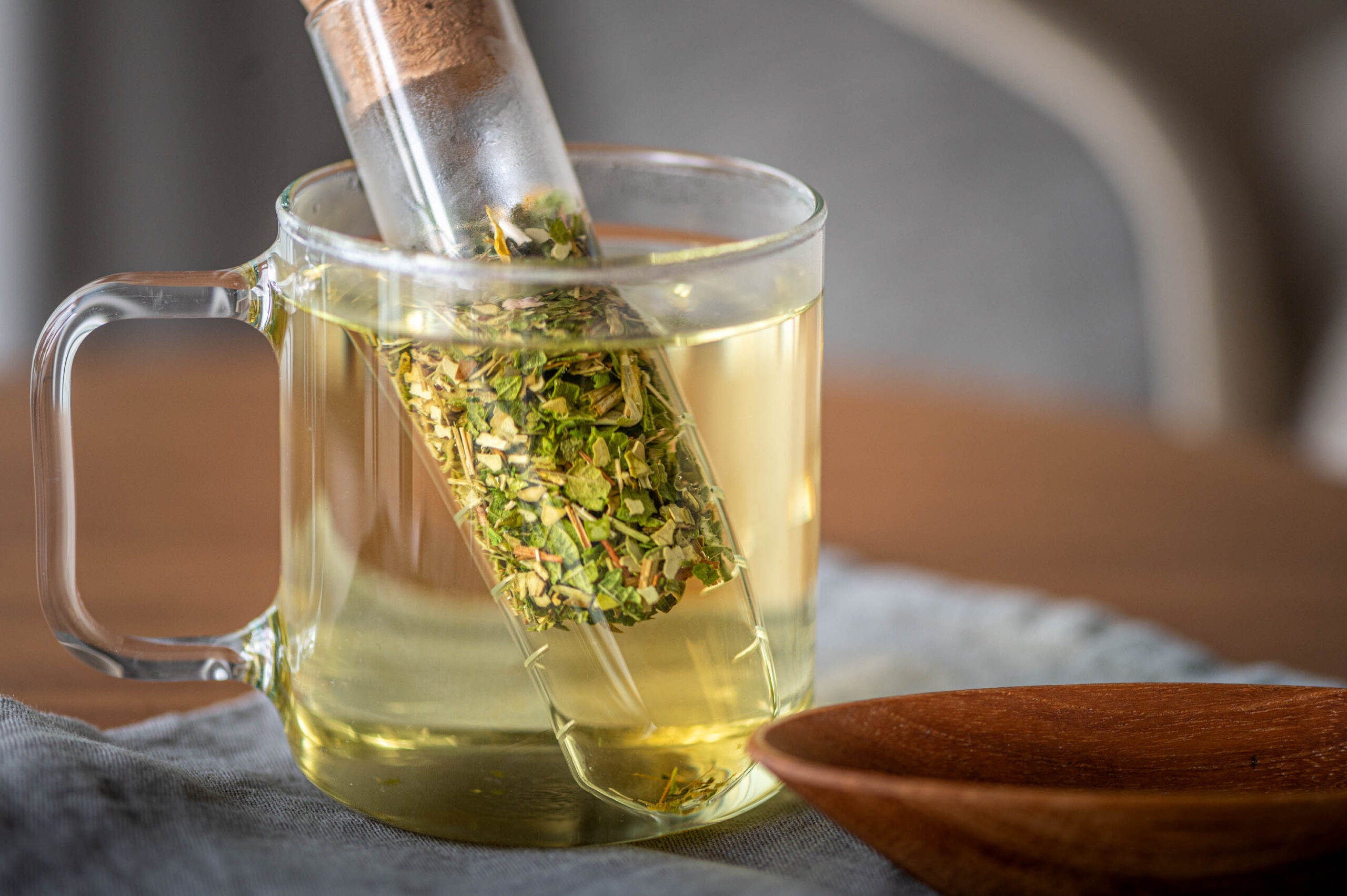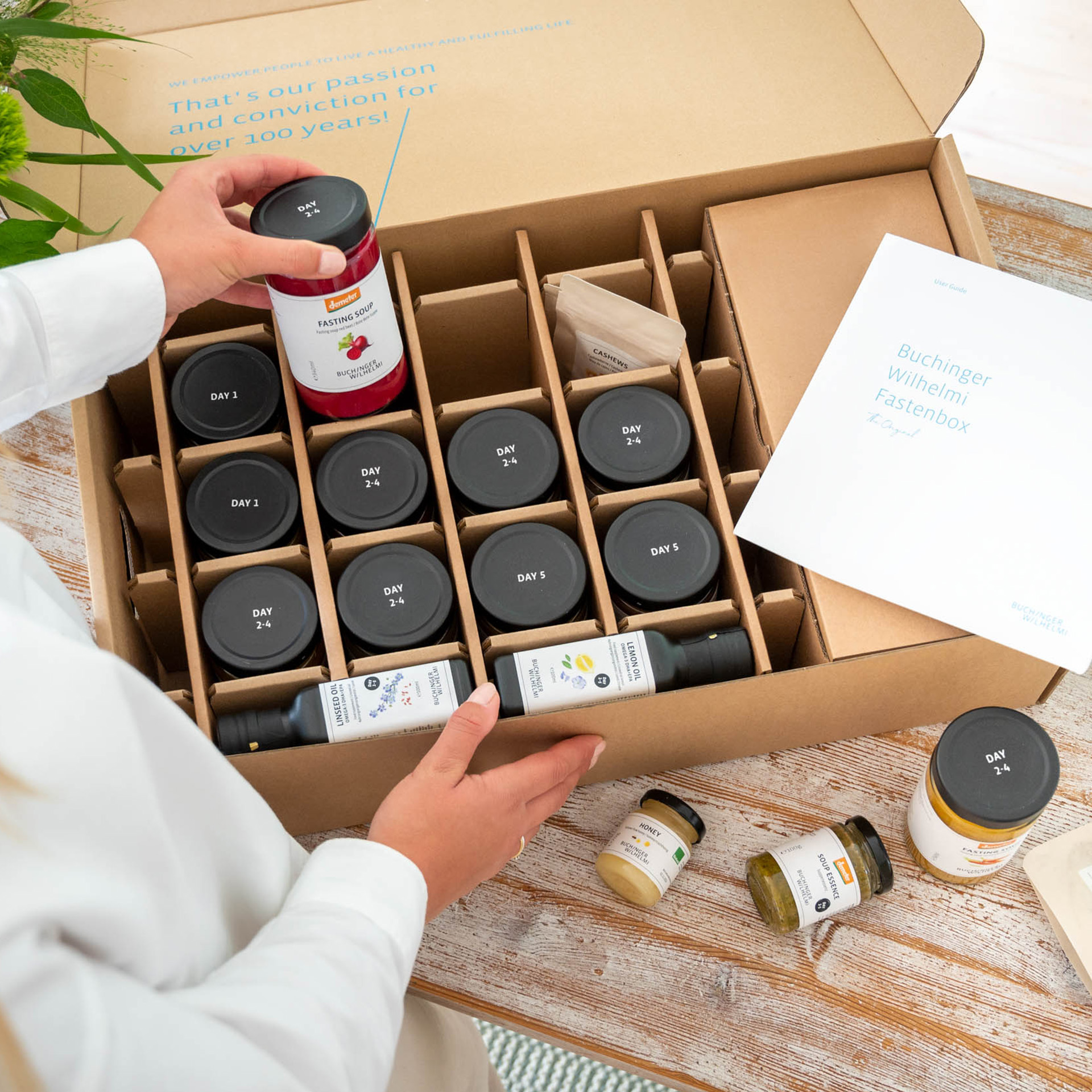WHAT THE EXPERTS SAY
Juice fasting,
Fasting Mimicking,
FASTING BOX?
A DIFFERENTIATION
Fasting programs for at home
In the field of nutrition and weight management, fasting diets have emerged as a popular and effective approach, offering a range of potential benefits, including weight loss, enhanced metabolic health, and a reduced risk of chronic disease. However, with the proliferation of fasting diets, it is crucial to understand the nuances of each approach and the potential drawbacks associated with some methods. The current trend of juice fasting in particular is worth exploring more closely.
What science says about it
The composition of macronutrients in fasting diets, such as the proportion of carbohydrates, proteins, and fats, plays a crucial role in determining their potential health effects. Different fasting diets emphasize different macronutrient ratios, resulting in varied physiological responses and health outcomes. Understanding this is essential for making informed decisions about their potential benefits and risks. In this article, we provide you with an overview of the nutritional values of different home-delivered fasting programs.
Fasting Mimicking Diets: A Mixed Bag
Fasting mimicking diets (FMDs) have gained traction due to their ability to mimic many of the physiological effects of prolonged fasting while allowing for the consumption of controlled amounts of specific nutrients. These diets typically consist of low-calorie, nutrient-dense shakes or soups enriched with protein, fiber, and micronutrients.
These programs are not only an effective way to reboot the metabolism in a relatively short time, but can usually also be easily integrated into day-to-day family and working life. However, the disadvantage of FMDs is that they are not designed to provide an enjoyable culinary experience – and that makes it more difficult to see them through.

Juice Fasting: A Sugary Trap?
Juice fasting, a popular form of intermittent fasting that involves consuming primarily fruit and vegetable juices, has garnered attention for its potential to activate the metabolism, supply vitamins, and promote weight loss and detoxification.
In the meantime, various ready-to-consume juice diets are available through different sales channels, whereby the production method, composition and price vary from provider to provider. Most are advertised as freshly pressed and free from preservatives. To extend their shelf life, some are treated using high-pressure processing (HPP), a preservation method that kills germs and bacteria and eliminates the need for additives or heat exposure. The diets usually come with instructions on the order in which the juices should be consumed. However, this “fasting” approach has little in common with therapeutic fasting and often has several drawbacks.
Eating too much sugar can have harmful effects on your health. It can increase your chances of developing obesity, type 2 diabetes, and heart disease. To promote overall health and prevent potential health issues, even the World Health Organization (WHO) suggests that adults limit their daily intake of added sugar to a maximum of 50 grams. This includes all sugar that is added to meals and drinks as well as sugar that is naturally contained in honey, fruit juices and concentrated fruit juice (the recommended daily limit applies to adults; for children and adolescents, it is lower). What’s more, the sugar found in fruit juice is predominantly fructose, a monosaccharide that is quickly converted into body fat and stored in the fat deposits.

Studies also show that consuming over 100 grams of fructose per day can make it harder for your body to control blood sugar levels. Juice fasting, which often involves consuming large amounts of fruit juice, can easily provide more than 150 grams of sugar per day. This can lead to excessive fructose intake and potentially worsen insulin sensitivity, which is the body’s ability to regulate blood sugar levels. It can lead to a vicious cycle of elevated blood sugar levels and insulin resistance, which again increases the risk of chronic diseases like obesity and type 2 diabetes as well as other metabolic disorders. People who nevertheless choose a juice diet should make sure they drink more vegetable juice than fruit juice, as the former contain less fructose. Even though there is limited scientific evidence of the potential negative effects of juice fasting, the idea of using a high-sugar diet for therapeutic purposes seems contradictory, considering the well-established connection between excessive sugar intake and various health concerns.
While reading these lines, you might remember that the Buchinger Wilhelmi fasting approach also includes the consumption of carbohydrates in the form of juice and honey. Although our programme recommends the consumption of a juice for lunch or dinner, we do not consider that this can be qualified as juice fasting because this also includes the consumption of honey and vegetable broth. We rather consider that this is a minimal supplementation. Our clinical experience and scientific studies show that supplementing the diet with carbohydrates to a minimum extent (limited to around 50 grams of carbohydrates or 250 kcal/day) has known health benefits. As is often the case, quantity is what matters.
The Buchinger Wilhelmi FASTENBOX is different: It offers a culinary adventure with a variety of soups, oils, and combinations of these to keep your taste buds engaged. Each carefully crafted meal is designed by our chef and our scientific team to nourish your body and mind. It contains fresh and organically prepared ingredients and does not contain any artificial shakes or bars.
